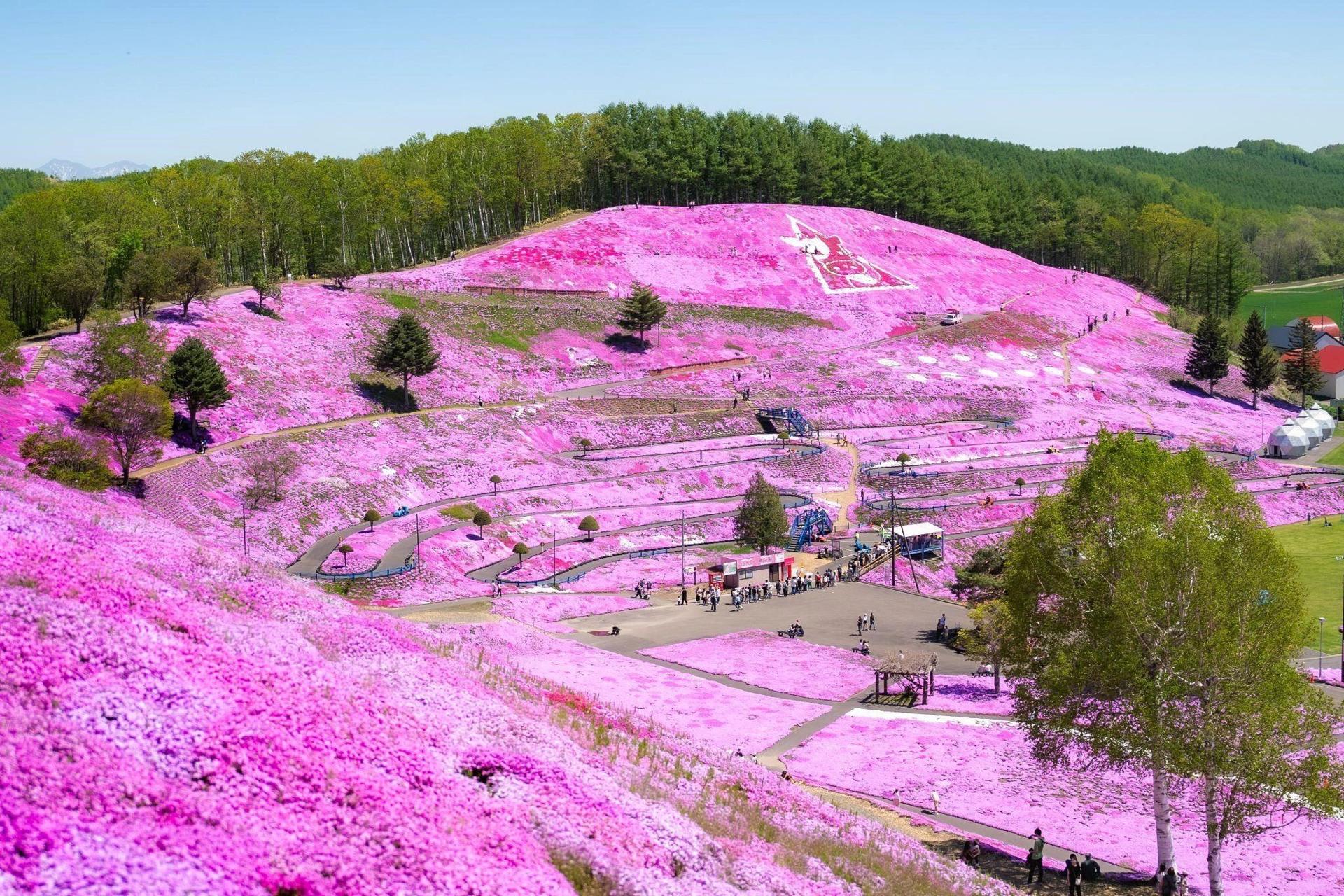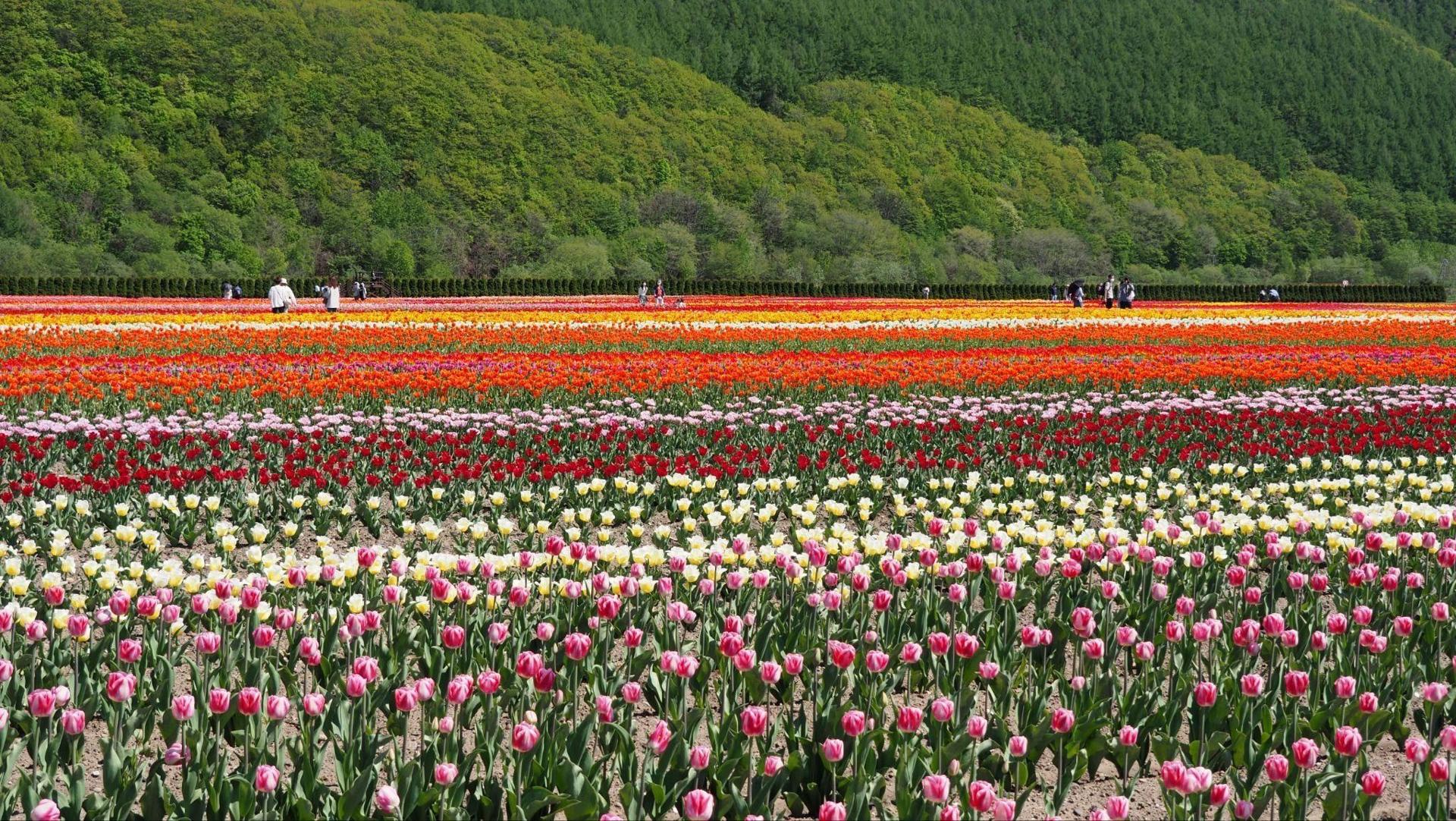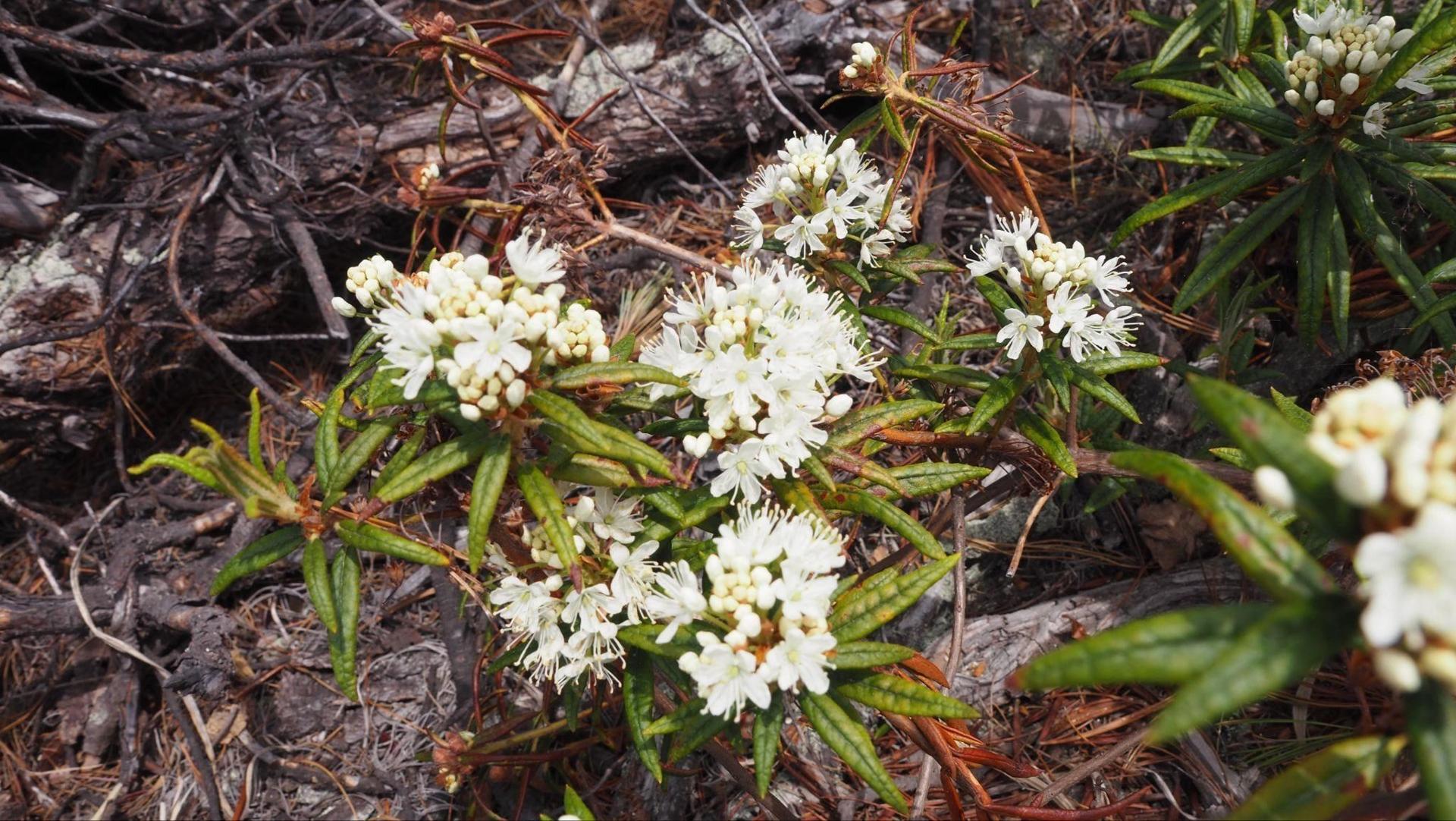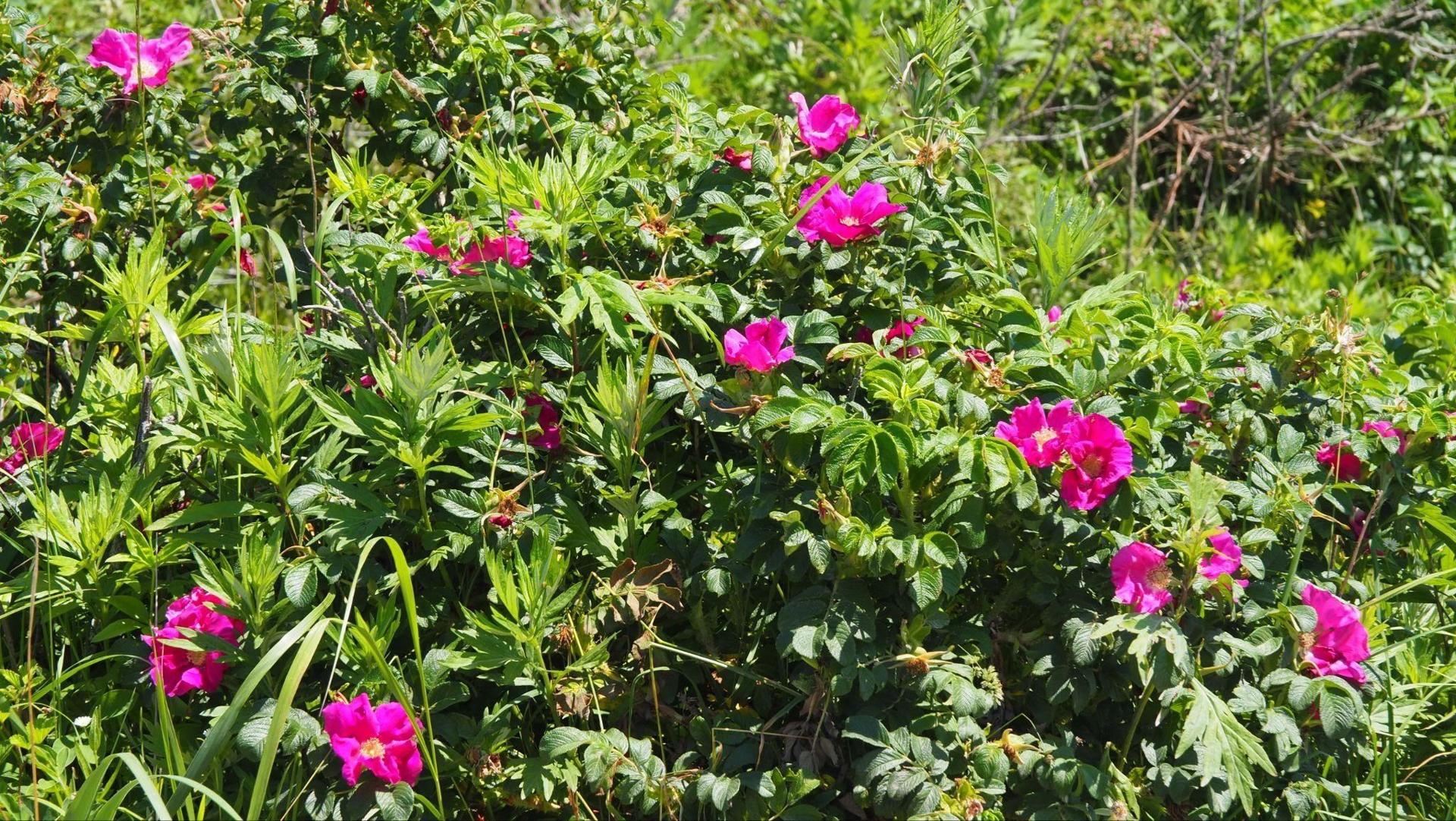Head to Eastern Hokkaido in the Flowering Season!
Local Recommendations for Must-Visit Spots
Local Recommendations for Must-Visit Spots
Publication Date:2025.05.23

Contents
01
Overview of Eastern Hokkaido
Eastern Hokkaido is home to vast, untouched natural landscapes
where a variety of flowers bloom throughout the seasons. From
spring to early summer, many flowers reach their peak, allowing
visitors to fully enjoy the beauty of nature. Due to the region’s
long and cold winters, one of its unique features is that you can
see cherry blossoms later here than in most other parts of Japan.
In this article, we will introduce the representative flowers of
Eastern Hokkaido, their blooming seasons, as well as notable
events and must-see spots. Beyond being simply famous
flower-viewing destinations, the area is also filled with unique
local events! Discover the charms of Eastern Hokkaido from a fresh
perspective—you’re sure to find something new to love.
02
Shibazakura (Moss Phlox)

When it comes to iconic spring sights in Eastern Hokkaido,
"shibazakura" (moss phlox) is a must-see. These tiny, cherry
blossom-like petals blanket the ground in vibrant shades of
pink, white, and purple, creating a sweeping carpet of color.
The best time to visit is from early May to early June, when the
flowers are at their peak for about a month. Top spots to enjoy
shibazakura include Higashimokoto Shibazakura Park, Takinoue
Shibazakura Park, Taiyo no Oka Engaru Park, and Tsubetsu 21st
Century Forest. Witnessing the breathtaking expanses of
shibazakura unique to Eastern Hokkaido is truly an unforgettable
experience. Many events also take place at each location to
coincide with the peak bloom. Don’t miss out on these
recommended events for enjoying the beauty of shibazakura!
1.Higashimokoto Shibazakura Festival (Ozora Town)
Event period: Early May to late May (approximately 3 weeks)
The hills, spanning over 10 hectares, are blanketed with moss phlox, creating a breathtaking contrast with the clear blue sky. During the bloom season, visitors can enjoy tasting and purchasing premium "Higashimokoto beef," live music performances, and a variety of events for children, making this festival highly recommended for families. Free shuttle buses are also available from downtown Higashimokoto, making it easy to access for tourists.
*Admission fees: 700 yen for junior high school students and above, 300 yen for elementary school students (as of April 2025).
The hills, spanning over 10 hectares, are blanketed with moss phlox, creating a breathtaking contrast with the clear blue sky. During the bloom season, visitors can enjoy tasting and purchasing premium "Higashimokoto beef," live music performances, and a variety of events for children, making this festival highly recommended for families. Free shuttle buses are also available from downtown Higashimokoto, making it easy to access for tourists.
*Admission fees: 700 yen for junior high school students and above, 300 yen for elementary school students (as of April 2025).
2.Takinoue Shibazakura Festival (Takinoue Town)
Event period: Early May to early June (about one month)
Spanning an impressive 100,000 square meters, the shibazakura fields here are among the largest in Hokkaido. It’s amazing to think that all these flowers originally grew from just a single box of seedlings. On weekends during the festival period, visitors can enjoy not only the flowers but also local culture through markets and workshops. As the park is quite expansive, we recommend wearing comfortable shoes for your visit.
*Admission: 500 yen for adults, 250 yen for children (as of April 2025).
Spanning an impressive 100,000 square meters, the shibazakura fields here are among the largest in Hokkaido. It’s amazing to think that all these flowers originally grew from just a single box of seedlings. On weekends during the festival period, visitors can enjoy not only the flowers but also local culture through markets and workshops. As the park is quite expansive, we recommend wearing comfortable shoes for your visit.
*Admission: 500 yen for adults, 250 yen for children (as of April 2025).
03
Tulips

Tulip fields bursting with vibrant colors are another popular
spring attraction. With around 200 varieties of tulips blooming
at once, the scenery looks straight out of a storybook. The vast
landscapes of Eastern Hokkaido create truly breathtaking views.
The best time to visit is in late May; however, since cold winds
are common during this season, the blooming period may be
delayed by about a week. Be sure to check the latest flower
information before planning your visit. The top recommended spot
is Kamiyubetsu Tulip Park—here’s what you need to know about
upcoming events.
1.Tulip Fair (Yubetsu Town)
Event Period: Early May to late May (about one month)
At "Kamiyubetsu Tulip Park" in Yubetsu Town, colorful tulips bloom across a vast 7-hectare area. Many rare varieties imported from the Netherlands can be seen here, with a total of around 200 different types on display. It’s a popular spot for taking picturesque photos. Visitors can also enjoy local gourmet foods, regional product sales, and panoramic views of the park from the Dutch windmill-style observation tower.
At "Kamiyubetsu Tulip Park" in Yubetsu Town, colorful tulips bloom across a vast 7-hectare area. Many rare varieties imported from the Netherlands can be seen here, with a total of around 200 different types on display. It’s a popular spot for taking picturesque photos. Visitors can also enjoy local gourmet foods, regional product sales, and panoramic views of the park from the Dutch windmill-style observation tower.
04
Azaleas

In Eastern Hokkaido, vibrant red and pink azaleas add a splash
of color to early summer. The striking contrast with Hokkaido’s
fresh greenery makes for fantastic photo opportunities. The best
viewing season is from early May to early June. Many of the best
spots to enjoy azaleas are located near hot springs or in scenic
parks, offering plenty of ways to enjoy both nature and
relaxation! Here are some recommended events for experiencing
azaleas:
1.Onneyu Onsen Azalea Festival (Kitami City)
Event Period: Early May (3 days)
Located about 40 minutes by car from downtown Kitami, the Onneyu Onsen hot spring area is beautifully adorned with blooming azaleas. Enjoy not only the flowers but also live music performances and local gourmet food stalls. It’s the perfect opportunity to relax in a hot spring and take in the azalea scenery. Unwind after your bath while soaking up the colorful views!
Located about 40 minutes by car from downtown Kitami, the Onneyu Onsen hot spring area is beautifully adorned with blooming azaleas. Enjoy not only the flowers but also live music performances and local gourmet food stalls. It’s the perfect opportunity to relax in a hot spring and take in the azalea scenery. Unwind after your bath while soaking up the colorful views!
2.Akkeshi Cherry Blossom & Oyster Festival (Akkeshi Town)
Event Period: Early May (about one week)
Held in Nenohi Park, a famous cherry blossom spot in Eastern Hokkaido with about 1,200 Ezoyamazakura and other cherry trees blooming across a 120,000-square-meter area. Carpets of azaleas bloom around the venue as well, and there are short walking paths where you can observe wild mountain flowers. This event is a must for those who want to enjoy both flowers and gourmet food—you can grill and savor three types of branded oysters, as well as fresh clams and other seafood right on the spot. No need to bring anything, making it a carefree and enjoyable day out!
Held in Nenohi Park, a famous cherry blossom spot in Eastern Hokkaido with about 1,200 Ezoyamazakura and other cherry trees blooming across a 120,000-square-meter area. Carpets of azaleas bloom around the venue as well, and there are short walking paths where you can observe wild mountain flowers. This event is a must for those who want to enjoy both flowers and gourmet food—you can grill and savor three types of branded oysters, as well as fresh clams and other seafood right on the spot. No need to bring anything, making it a carefree and enjoyable day out!
05
Rugosa Roses (Hamanasu)

One of the signature flowers of early summer in Hokkaido is the
"Hamanasu" (rugosa rose). This rose family plant, which also
appears on the packaging of Hokkaido’s famous confectionery
“Rokkatei,” is designated as Hokkaido’s prefectural flower.
Known for its resilience in cold climates, hamanasu grows in
clusters along coastal areas and blooms in early summer. Its
appearance, swaying in the sea breeze, looks just like a scene
from a picture book. The best viewing time is from early June to
early August. With its strong fragrance and vitamin C-rich
fruit, hamanasu is used as an ingredient in a variety of
products such as cosmetics, perfumes, jams, and teas. Beauty
goods and sweets inspired by or made with hamanasu are available
everywhere, making them perfect souvenirs. Here are some top
spots for viewing hamanasu!
1.Koshimizu Genseikaen
About a 40-minute drive from central Abashiri, this wildflower
garden offers panoramic views of the Sea of Okhotsk and the
Shiretoko mountain range. In addition to hamanasu, you’ll find
rare flowers unique to Hokkaido, such as Ezokanzo (yellow
daylily) and Ezosukashiyuri (lily), with as many as 200
different varieties blooming throughout the season! It’s also a
recommended spot for birdwatching. During summer, the JR Senmo
Line’s Genseikaen Station operates exclusively for the flower
season, allowing you to admire the swaying blooms right from the
train window.
Shiretoko Airport Liner
For convenient access to the Abashiri and Shiretoko areas, the
Shiretoko Airport Liner is highly recommended. This seasonal
direct bus connects Memanbetsu Airport, central Abashiri, and
Shiretoko (Utoro). (Summer: June–September / Winter: Late
January–early March)
06
More Than Just Flowers? Introducing Garden Spots
In Eastern Hokkaido, you’ll find a variety of garden spots where
you can enjoy not only seasonal flowers but also lush green
landscapes all at once. From must-see popular gardens to hidden
gems known only to a few, here are five wonderful gardens
brimming with highlights. Many of these gardens also feature
shops and cafes—making them perfect for families and couples
alike. Please note that most gardens are closed in winter, so be
sure to confirm the opening dates before your visit.
1.Shichiku Garden (Obihiro City)
This heartfelt, handmade garden was lovingly created and
maintained by the late Akiba Shichiku, who remained involved in
its care well into her 90s. Spread across a vast 5-hectare
(about 15,000 tsubo) area, the different themed sections are
home to more than 400 types of flowers and plants. Beyond the
gardens, you can gaze out at Tokachi’s beautiful rural
landscape. Tulips, lupines, poppies, and roses are at their best
from spring to early summer. Inside the garden, you’ll find a
restaurant serving gourmet dishes featuring organic vegetables
grown on-site and fresh local ingredients from Tokachi. Annual
passes are available for those who want to visit frequently.
[Information]
Address: 107, Biei-cho Nishi 4-sen, Obihiro City
2.5 hours by car from Kushiro Airport
30 minutes by car from Tokachi-Obihiro Airport
Open: From the 3rd Saturday in April to late October (the restaurant remains open by reservation even after the garden closes)
Hours: 8:00–17:00
Closed: Open daily during the season
Admission: Adults ¥1,000 / Children ¥200 (as of April 2025)
2.5 hours by car from Kushiro Airport
30 minutes by car from Tokachi-Obihiro Airport
Open: From the 3rd Saturday in April to late October (the restaurant remains open by reservation even after the garden closes)
Hours: 8:00–17:00
Closed: Open daily during the season
Admission: Adults ¥1,000 / Children ¥200 (as of April 2025)
2.Manabe Garden (Obihiro City)
Experience a vast “museum of plants” on an expansive 8.2-hectare
(about 25,000 tsubo) site, featuring three themed gardens:
Japanese, Western, and Natural. Widely recognized as Japan’s
first conifer garden, Manabe Garden is run by the Manabe
Nursery, which also imports, produces, and sells trees. The
garden features a wide variety of conifers and other trees. The
European-style section is particularly enchanting, making you
feel as if you’ve stepped into a storybook village far from
Japan. You may even spot native Hokkaido squirrels as you stroll
along the paths. Hamanasu roses and Hokkaido hydrangeas bloom
beautifully from June to July. Pets are welcome, making this a
great destination for families.
[Information]
Address: 6, Inadamachi Higashi 2-sen, Obihiro City
Open: April 20 – November 24 (as of April 2025)
Hours: 8:30–17:30 (until 15:30 in November)
Closed: Open daily during the season
Admission: ¥1,000 for high school students and older / ¥200 for elementary and junior high students / Free for preschoolers (as of April 2025)
Open: April 20 – November 24 (as of April 2025)
Hours: 8:30–17:30 (until 15:30 in November)
Closed: Open daily during the season
Admission: ¥1,000 for high school students and older / ¥200 for elementary and junior high students / Free for preschoolers (as of April 2025)
3.Tokachi Millennium Forest (Shimizu Town)
Located at the foot of the Hidaka Mountains, Tokachi Millennium
Forest was created with the vision of leaving a lasting legacy
for humanity one thousand years into the future. Spanning a vast
area equivalent to about 85 Tokyo Domes, the site encompasses
sprawling grasslands and five distinctive gardens. The highlight
is the award-winning Earth Garden, designed by a British
landscape architect, which offers a breathtaking panoramic view
of the mountains and rolling lawns merging as one—an
unforgettable sight sure to leave a lasting impression. Guided
Segway tours in the garden are especially popular, allowing
visitors to explore the meadows and forests over the course of
two hours. Cheese-making workshops and horseback riding
experiences are also offered, making this a great destination
for families. There is also an on-site café where you can take
breaks and enjoy the gardens at your own pace. Pets are welcome.
[Details]
Address: Habiro Minami 10-sen, Shimizu Town
Open: April 20 – October 14 (as of April 2025)
Hours:
April & June: 9:30–17:00
July & August: 9:00–17:00
September & October: 9:30–16:00
Closed: Open daily during the season
Admission: Adults ¥1,200 / Elementary & Junior High Students ¥600 / Preschoolers free (as of April 2025)
Open: April 20 – October 14 (as of April 2025)
Hours:
April & June: 9:30–17:00
July & August: 9:00–17:00
September & October: 9:30–16:00
Closed: Open daily during the season
Admission: Adults ¥1,200 / Elementary & Junior High Students ¥600 / Preschoolers free (as of April 2025)
4.Rokkatei “Rokka no Mori” Garden (Nakasatsunai Village)
Operated by the famous Hokkaido confectionery maker “Rokkatei,”
this garden features many of the flowers that appear on its
package designs. The six “Tokachi wildflowers” (Ezo gentian,
Japanese rose ‘hamanashi’, Trillium, Dogtooth violet, Marsh
marigold, and Glaucidium) all bloom amid the vast forests of
Tokachi. The garden also houses a small museum showcasing works
by leading Hokkaido artists, allowing visitors to enjoy art as
they stroll the grounds. At the on-site "Rok’cafe," you can dine
or enjoy desserts with a view of Hokkaido’s great outdoors. This
is the only place where you can try Rokkatei’s famous Marusei
Butter Sandwich freshly made. There are also café-exclusive menu
items and original goods that make perfect souvenirs.
[Details]
Address: 249-6, Tokiwanishi 3-sen, Nakasatsunai Village,
Kawai-gun
Open: April 25 – October 26 (as of April 2025)
Hours:
April, May, August, September, October: 10:00–16:00
Shop: 10:30–16:00
Café: 11:00–16:00 (Lunch menu last order 15:00, Dessert menu last order 15:30)
June & July: 9:00–16:00
Shop: 9:30–16:00
Café: 11:00–16:00 (Lunch menu last order 15:00, Dessert menu last order 15:30)
Admission: Adults ¥1,000 / Elementary & Junior High Students ¥500 (as of April 2025)
Open: April 25 – October 26 (as of April 2025)
Hours:
April, May, August, September, October: 10:00–16:00
Shop: 10:30–16:00
Café: 11:00–16:00 (Lunch menu last order 15:00, Dessert menu last order 15:30)
June & July: 9:00–16:00
Shop: 9:30–16:00
Café: 11:00–16:00 (Lunch menu last order 15:00, Dessert menu last order 15:30)
Admission: Adults ¥1,000 / Elementary & Junior High Students ¥500 (as of April 2025)
5.Tokachi Hills (Makubetsu Town)
Tokachi Hills, with its concept of showcasing the charm of both
agriculture and cuisine, spreads across a vast 23-hectare area
dotted with themed gardens, primarily in the English style. In
spring, tulips come into full bloom, while summer brings vibrant
roses and nemophila. The gardens are filled with benches,
winding paths, and multiple photo spots—such as the unique door
monument set against a backdrop of sunflowers—making this a
must-visit for photography enthusiasts. With picnic blankets and
children’s toys available for rent, as well as carts for touring
the site, Tokachi Hills is also perfect for families. The
on-site restaurant serves carefully crafted dishes featuring
vegetables and fruits harvested right from the garden. Enjoy the
exceptional cuisine prepared by a Hungarian chef with experience
in world-renowned restaurants, all while taking in the
magnificent natural scenery unique to Eastern Hokkaido.
[Details]
Address: 13-5 Nishin, Makubetsu Town
Opening Period: April 20 – October 31 (as of April 2025)
Hours: 9:00–17:00
Closed: Open daily during the season (Café closed on Tuesdays and Wednesdays)
Admission: Adults ¥1,000 / Elementary & Junior High Students ¥400 / Children under elementary school age free (as of April 2025)
Opening Period: April 20 – October 31 (as of April 2025)
Hours: 9:00–17:00
Closed: Open daily during the season (Café closed on Tuesdays and Wednesdays)
Admission: Adults ¥1,000 / Elementary & Junior High Students ¥400 / Children under elementary school age free (as of April 2025)
07
Summary
Spending a relaxing moment surrounded by nature and colorful
flowers is a true luxury that allows you to escape from everyday
life. Eastern Hokkaido is blessed with breathtaking scenery where
flowers and nature come together in perfect harmony. From popular
spots to secret gardens known only to locals, you’re sure to find
your own favorite place. As the scenery and attraction change with
each season, you’ll want to visit again and again! Why not set out
with friends, a partner, or family and discover the beauty of
Eastern Hokkaido for yourself?
Writer Information

Naeka Okumura
Naeka Okumura, born in 1994, hails from Kitami City, Hokkaido. Worked for six years at a financial institution within Hokkaido. Later joined a video production company, Hokuei Northern Films, in Kitami City as a chief manager and writer. Resigned in 2023 and became independent as a copywriter and journalist writer under the name Produce One.
Naeka Okumura, born in 1994, hails from Kitami City, Hokkaido. Worked for six years at a financial institution within Hokkaido. Later joined a video production company, Hokuei Northern Films, in Kitami City as a chief manager and writer. Resigned in 2023 and became independent as a copywriter and journalist writer under the name Produce One.